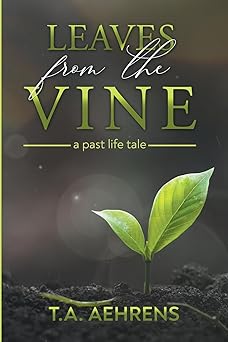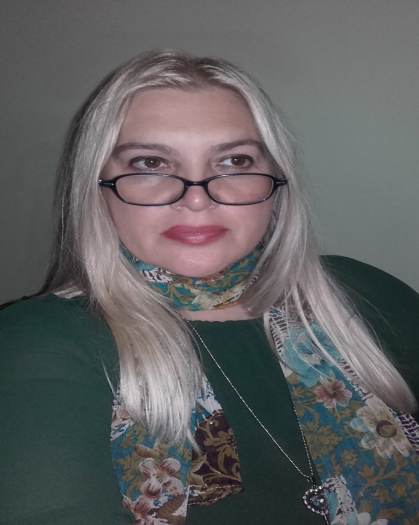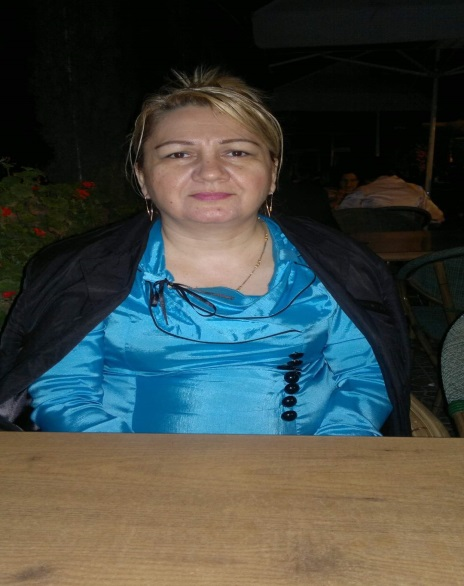
Curious, I consulted a psychic who confirmed what my chart had suggested: that my family had endured shame rooted in a past event—something that happened long before I was born. I couldn’t shake the feeling that my writing was somehow tied to this revelation. So I asked my father about our lineage, and he quietly shared a difficult truth: that his great-grandfather was a Dutch slave master, and his great-grandmother had been an enslaved woman in his household. He directed me to his eldest sister, Aunt Daphne, for more.
Aunt Daphne told me what little she knew about “the Dutchman”—that he was both a pastor and a Justice of the Peace, and that his name was Cornelius. The moment she said his name, I froze. Cornelius was the name of the grandfather pastor in the story I had written all those years ago. I had even described his favorite candy as licorice—a detail that, to my surprise, is a traditional Dutch treat.
It was in that moment I realized I hadn’t written a work of fiction after all—I had written a remembrance. My hands had merely transcribed what my spirit already knew.
That was when I knew this story wasn’t meant to stay on a hard drive. It was meant to be shared—both as an act of remembrance and as a tool for healing. The research wasn’t traditional, but it was guided—by dreams, divination, and a deep listening to my lineage.
Question #2:How much of this book is from your ancestry and how much is made up?
To be perfectly honest, I’m not entirely sure where memory ends and imagination begins. When I first began writing Leaves From the Vine, I had no conscious knowledge of what I was channeling. It wasn’t until I later explored my family’s history that I began to see startling
parallels—details in the story that echoed my great-great-grandfather’s life and the legacy of his descendants.
That’s why the imagery is somewhat elusive, set in a quiet town “in the middle of nowhere,” a place that could be anywhere—or nowhere at all. It reflects that sense of mystery and ancestral whispering.
What I did craft intentionally was the dialogue, the rhythm of the language, the emotional texture. I used artistic license to shape the tone—infusing it with wit, symbolism, and sentiment.
And while the story is deeply rooted in family lineage, I also chose to include something profoundly personal in the Afterword: the Invocation for Sacred Sexual Embodiment (from the Ascension Glossary). That was my offering—a healing remedy for those navigating sexual trauma. While that part isn’t inherited from my ancestry, it’s a conscious and heartfelt contribution to the legacy of healing.
Question#3: How do you think people reconciled being people of faith, and even pastors with being slave owners and perpetuating injustice?
I’m not sure they ever truly had to reconcile it—at least not in a way that disturbed their sense of righteousness. Many slaveholders, including pastors, used scripture—like Ephesians 6:5—to justify the institution of slavery. Verses such as “Slaves, obey your earthly masters with respect and fear…” were interpreted literally, providing a moral and religious rationale for what was, in truth, a deep injustice.
But faith without compassion becomes blind obedience. And privilege, when left unchecked, can distort one’s understanding of justice and mercy. In many cases, those in power may have believed themselves to be the ones under threat—viewing any resistance from the enslaved as rebellion rather than a cry for freedom.
This perception of fear allowed them to see themselves not as oppressors, but as protectors of order, which further reinforced their actions. It’s a painful paradox: using faith as a shield to avoid reckoning with cruelty. And yet, it’s this very contradiction that makes the truth so vital to examine today—with humility, not blame.
Question #4: How do you think it’s possible to break generational curses or generational patterns of course dysfunctional behavior?
Breaking generational curses isn’t just about changing behavior—it’s about transforming identity at the root. We must approach healing as an act of Identity Alchemy, a sacred process of rewriting the unconscious contracts we’ve inherited.
First, we must Expose the Ancestral Root—identify the patterns that have been passed down, the pain that still echoes through our choices, and the beliefs we didn’t even know we adopted.
Then we Shock the Pattern with Radical Reversal. That means doing the opposite of what the curse expects—speaking the truth where silence ruled, choosing joy where shame lingered, or creating boundaries where chaos thrived.
Next, we Implant a Future Memory by consciously visualizing and anchoring a new narrative—one where we are free, whole, and deeply loved. The subconscious doesn’t know the difference between memory and imagination, so we use that to our advantage.
We then Sever the Quantum Energy Cords, energetically and emotionally cutting ties with the trauma and limitations that no longer serve us. We release the old without fear. Finally, we Embody the One Who Was Never Bound—our truest, most divine self. This is the
version of us who lives not from pain, but from power. Who walks not in shame, but in sovereignty.
This is how we heal—not just for ourselves, but for those who came before us and those yet to be born.
Question #5: Did your ancestors ever repent of enslaving people and how might we begin to heal that wound as a country?
Yes (my great- great -grandfather)—he’s repenting through me, his descendant, his soul-scribe. Through my voice, he’s asking for forgiveness. He’s sorry for abusing his power and manipulating his privilege to oppress others. He now understands—through my own
suffering—that in enslaving others, he also enslaved himself: to greed, to ego, to the seduction of control.
He became a prisoner to the very forces he thought he controlled. A prisoner to fear, to lust, to legacy. Slavery robbed his victims of their freedom—and robbed him of peace, love, and the humanity that connects all souls, even across lifetimes.
His spirit seeks redemption now. He knows that true power doesn’t require domination. That true privilege uplifts rather than oppresses. And that true faith is never rooted in fear.
The wound of slavery cannot begin to heal if we continue to reopen it—whether knowingly or unconsciously—through daily practices rooted in a painful past. Each time we glorify “soul food” without acknowledging its origins in survival, each time we discipline our children with the same tools once used to control, each time we overlook the spiritual traditions of our ancestors in favor of the religion that once justified their bondage—we unknowingly press salt into the wound.
On the other side, the wound festers in silence each time privilege built on slave labor is denied or dismissed. Every benefit drawn from generational wealth, every institutional advantage, every opportunity rooted in the unpaid labor of others—left unacknowledged—prolongs the ache.
Healing begins when we commit to the uncomfortable work of unlearning: unlearning inherited superiority, and also unlearning generational servitude. It begins when we honor the full truth of
our history—not just its victories, but its violations. Only then can we move toward wholeness—not as separate sides, but as one people reckoning, remembering, and rebuilding.
Question #6: How can individual people begin to make amends for systemic injustice put in place by their ancestors?
I’m not entirely sure there’s a single answer, but I do know that making amends begins with a willingness to sacrifice comfort for justice. The obvious place to start would be to embody the spirit of modern-day abolitionists or even modern-day hippies—people unafraid to disrupt the status quo in the name of equality and compassion.
To truly make amends, descendants of those who benefited from systemic injustice must first acknowledge that they’ve inherited not just wealth or status, but also a moral debt. And they must be willing to pay it forward—not in shame, but in service. This might mean using their influence to challenge systems that favor them. It might mean divesting from privileges that came at others’ expense.
But here’s the real question: Who among them is willing to risk losing inherited power, privilege, or prosperity for the sake of justice? To go against the grain of their lineage? Because making amends is more than a performance of empathy. It’s a courageous reordering of values—a revolutionary act of love.
Question #7: What role does faith play in Leaves From the Vine and why/how can faith and spiritual practices help people?
Faith is the heartbeat of Leaves From the Vine. The town of Charlestown itself is built on a foundation of faith, family, and fellowship—where the Big Church stands not only as a place of
worship but as the town’s schoolhouse, meeting hall, and sacred ground. It’s quite literally the center of their lives. So when young Jones Jr. begins to question his Christian beliefs, it shakes
the town to its very core.
But as the story unfolds, we see how each character is tested. Jones Jr. must find faith in himself to lead the church when his father falls ill. Mrs. Jones clings to her unwavering faith that her son is still alive, even when others doubt. The twin sisters, Anna and Annie, draw on their shared faith in each other to face the nightly hauntings.
Every soul in Charlestown is pushed to their limit—but it’s their faith, especially faith in the power of love, that ultimately breaks the curse.
Faith helps people by creating a sacred space for love and joy to dwell—even when the world outside feels harsh or unkind. It serves as a spiritual retreat, a quiet refuge from life’s noise and cruelty.
When doubt clouds the mind and uncertainty shakes the soul, faith becomes the balm that steadies us. It reminds us that we’re not alone. That there’s something greater, something divine, that holds
us even when we can’t hold ourselves. Faith gives people something to believe in, especially when belief in themselves feels like too much to carry. It softens the edges of pain and sharpens our vision for hope.
At its most tender, faith teaches us gratitude—for the small mercies, the everyday miracles, and the unseen grace that carries us forward.
Question #8: Why did you write this book and what do you hope to accomplish with Leaves From the Vine?
I wrote this book because I began to sense that I was simply the messenger—entrusted with a story that needed to be told. Over time, it felt less like something I was creating and more like something I was uncovering. I came to see myself as a voice for my great-great-grandfather, someone whose truth had long been buried. Through me, he could finally speak—offering confession, seeking redemption, and hoping for peace. In telling his story, I also hoped to bring healing to his descendants, including myself, and perhaps offer a mirror for others to reflect on their own generational wounds.
This book is my personal call to courage. I hope it inspires others to bravely uncover their own family stories—the ones hidden in silence or shame. I want readers to feel empowered to confront the spiritual and emotional battles their ancestors may have left unresolved. My hope is to awaken a generation that seeks healing with humility, gives and receives love with openness, and chooses to leave behind a legacy rooted in truth, honor, and redemption. If this story stirs
even one person to begin that journey, then it has done its work.
Question #9:Who are some of the authors you admire?
I admire Iyanla Vanzant for her bold, unapologetic voice and her willingness to speak from personal experience. In books like Yesterday, I Cried and In the Meantime, she holds herself
accountable for her own shortcomings, and that honesty creates space for true healing. I respect that she doesn’t just “preach” to her readers—she walks the talk and invites others to do the same.
I also admire Caroline Myss, particularly for her work in Sacred Contracts, where she introduces the idea that each of us is born with twelve core archetypes that shape our purpose and path. Her teachings helped me recognize the unconscious roles I’ve played and the agreements my soul may have made before coming into this life. That framework has been key to understanding both personal and ancestral patterns.
Don Miguel Ruiz, through his book The Four Agreements, helped me embrace a liberating perspective—especially the powerful lesson of not taking things personally. That one idea alone has protected my peace more times than I can count.
Lastly, I admire Eckhart Tolle for his deeply grounded spiritual wisdom and his conversational approach to writing. The Power of Now is structured as a dialogue, which feels intimate and
refreshing—especially for those of us raised in spaces where questioning was discouraged. His work helped me come home to the present moment and discover freedom in simply being.
Each of these authors has been a guidepost on my own spiritual healing journey, and their work quietly echoes through the pages of Leaves From the Vine.
T.A. Ahrens’ Leaves from the Vine may be ordered here.



